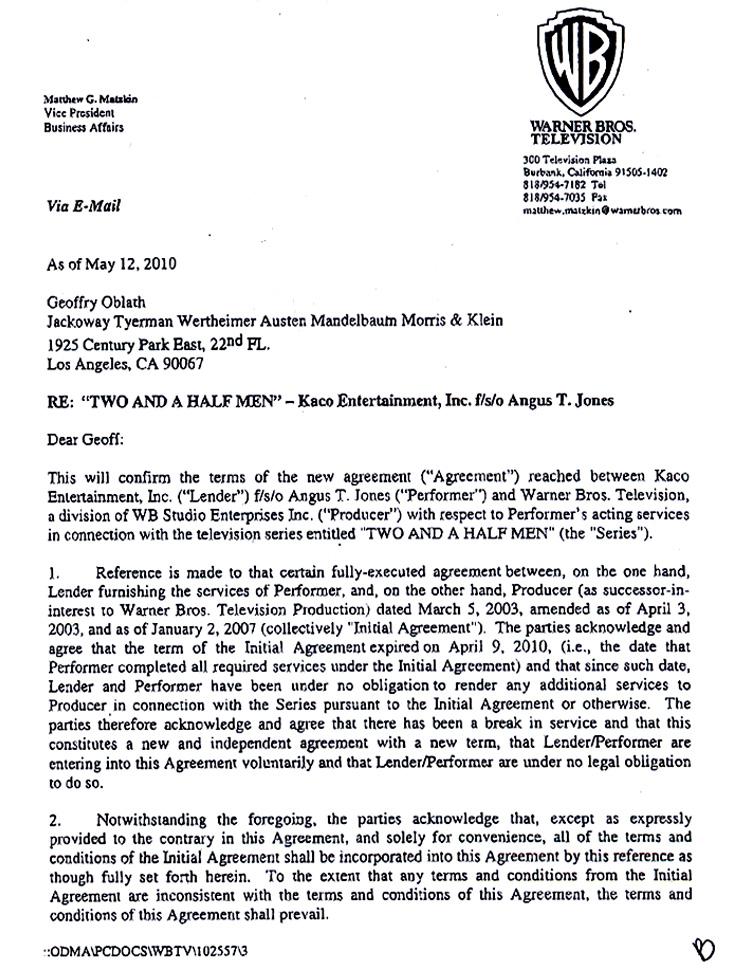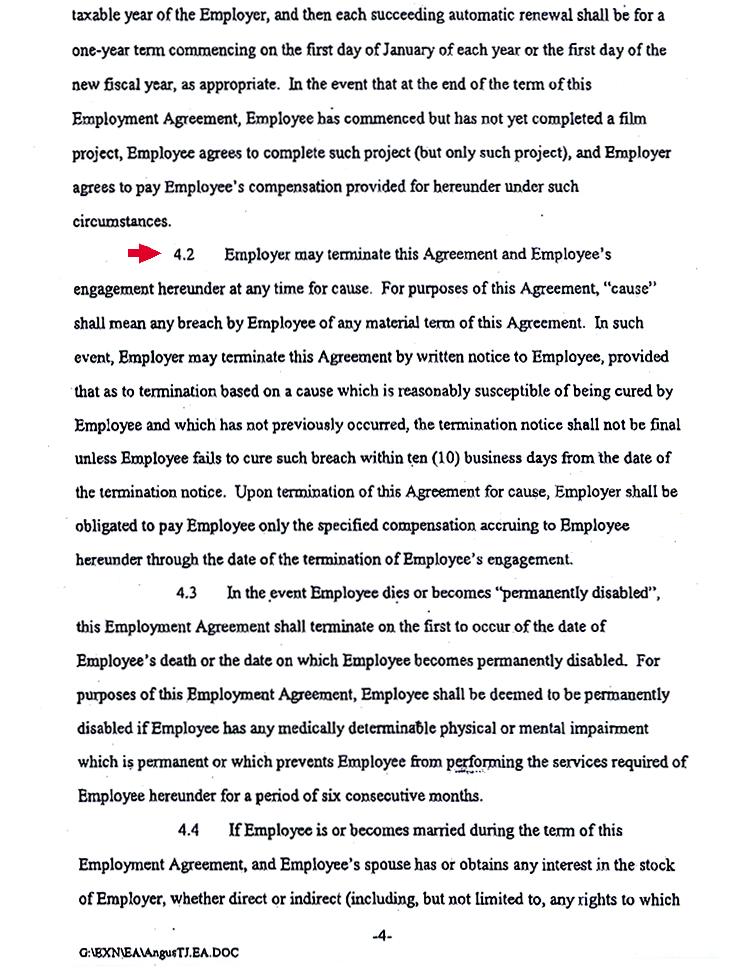Actor Reads His Contract, Comes To His Senses
Angus T. Jones: "Two and a Half Men" not that filthy

View Document
NOVEMBER 28--In light of his apology for those trenchant remarks about the TV show “Two and a Half Men,” it appears that actor Angus T. Jones finally took the time to read the terms of his lucrative contract--and quickly came to his senses.
In May 2010, the performer inked an agreement with Warner Brothers Television calling for him to be paid $300,000 an episode of the hit CBS sitcom,  with a guaranteed minimum of 13 shows in the following two production seasons (2010/11 and 2011/12).
with a guaranteed minimum of 13 shows in the following two production seasons (2010/11 and 2011/12).
In addition to the $3.9 million yearly guarantees, Jones, now 19, was given a $500,000 bonus, pushing the two-year deal’s value to an $8.3 million minimum.
Jones’s haul was likely to grow further since he was given a small piece (1/4 of one percent) of the program’s “Modified Adjusted Gross Receipts” retroactive to the comedy’s premiere in 2003. The definition of gross receipts is contained in a mind-numbing 11-page exhibit attached to the actor’s Warner Brothers deal (aspiring agents and studio executives can click here for a pdf of the document).
Jones was entitled to the gross receipts cut so long as he was “not in breach” of the agreement. But neither the actor’s employment agreement nor the 2010 agreement detail what constitutes such a breach.
The documents do not include language addressing a performer’s possible disparagement of the show or its producer. In a video filmed for a Christian group, Jones said that “Two and a Half Men” was “filth” and urged viewers to stop watching the program. “I'm on “Two and a Half Men” and I don't want to be on it, said Jones. “Please stop watching it and filling your head with filth.”
According to the employment agreement, Warner Brothers could terminate Jones’s employment at any time for “cause,” which is defined as “any breach by Employee of any material term of this Agreement.” However, an employee--after receiving a termination notice--would have 10 business days to “cure such breach.”
Since Jones’s deal with Warner Brothers was struck when he was still a minor, it had to be approved by his parents and a Los Angeles Superior Court judge (and, as such, filed in court). (4 pages)









